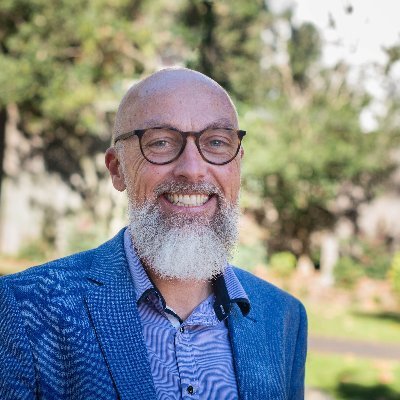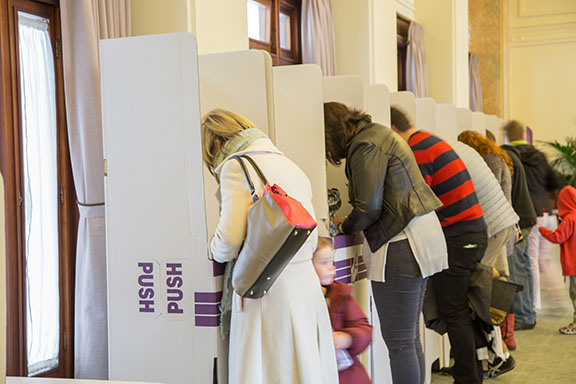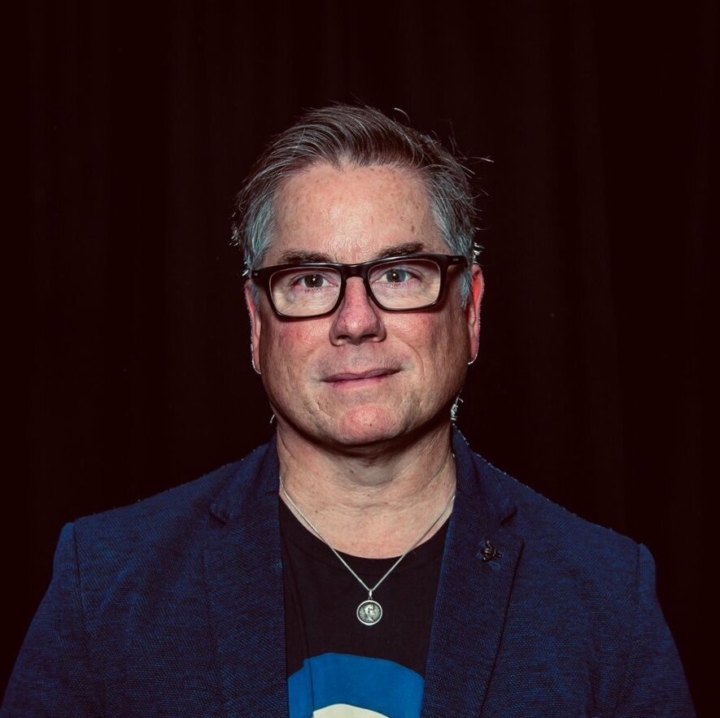Scott Morrison’s interventionist God
I don’t believe in an interventionist God
But I know, darling, that you do
But if I did, I would kneel down and ask Him
Not to intervene when it came to you
Oh, not to touch a hair on your head
Leave you as you are
If he felt he had to direct you
Then direct you into my arms
Nick Cave: Into Your Arms
Australia is, under the Prime Ministership of Scott Morrison, well on its way to becoming Gilead, the mythical and religiously dystopian location of The Handmaid’s Tale.
Well at least that’s how certain sections of the mainstream media would portray it. Faced with a Prime Minister whose religious zeal borders on, well borders on the normal for vast swathes of Christians, secular journalists have been in paroxysms over the country’s inevitable slide into theocracy. Morrison’s problem is that he, unlike the speaker in Nick Cave’s song, believes in an interventionist God.
The fact that the Prime Minister raises his hands in church; says that his hugging of those in distress is his way of laying hands and praying for them; believes that God speaks to him through the Scripture and by the Holy Spirit; that Jesus did indeed rise from the dead, and that God is in charge of his life, all this is seen as the equivalent of a cult.
Even that well known church going ex-Prime Minister, Kevin Rudd, has gotten in on the act, accusing Morrison of behaving in an overtly-zealous manner. The media were quite used to taking pictures or conducting interviews of Rudd as he left his church, but this is quite different.
Why is it different? Because Rudd was photographed leaving a church building that we are all familiar with, at least from the outside. His brand of religion was seen as safe, vanilla, cool and dispassionate, and not prone to outbursts of intensity. In other words he was not guilty, in the eyes of the media at least, of worshipping an interventionist God.
There was no expectation that God would step in to actual life in any discombobulating way. Having a pew to oneself was as close as you needed to be to others (perish the thought of the laying your hands on someone else other than to pass the peace), and whether Jesus actually bodily rose from the dead was not considered to be an essential to attendance, belief or even baptism.
The church Rudd went to was the church that the secular commentators no longer went to, but well remembered having gone there in their youth – especially the Baby Boomers among them – and it was boring, dry, uninspiring, and safe.
For such media types, if Christian leaders have something to say, it is usually about tragic events around the world, or about a cause that requires no particular religious affiliation to affirm. Indeed there is something wholesome about seeing a middle-aged man in a cassock or alb utterly agree with a strident anti-theist on this, that or the other. Wholesome and safe.
Christian leaders were often the “day late and dollar short” types whose opinion on a matter was only sought after the political leaders had their say, and in order to either confirm it or refute it. But the understanding – indeed the agreement – was that they would do so strictly on less-than-transcendent terms. The immanent frame, as Charles Taylor would put it, remained safely intact.
But Scott Morrison? Pentecostal leaders? It’s the return of transcendence. And intervention. And that’s a bridge too far for those whose view of secularism is that it will eventually wear down religious faith, leaving it weak and enervated. Religion will eventually be kicked to the kerb where it belongs.
Secularism’s self-confidence has failed to foresee a future in which Pentecostal Christianity (and other “hot” religious movements) might regain a foothold in the West, nor has it understood the historical past in which Christian movements, in both size and intensity, have ebbed and flowed, even before secularism’s supposed ascendency.
The fact that church attendance in the USA is higher now than at many times in the past escapes secularism’s notice. Why? Because it does not fit the secular “subtraction story”; the idea that over time modernity is scraping off the detritus of myth and religion, leaving us with the bare “what is” in which the public square exists. With religion firmly pushed to the realm of private opinion, we can now get on with utilising public fact. Or so the story goes.
Clearly, however, someone forgot to tell the Pentecostals. Hence the furore of Morrison. Hence the shock and outrage that Gilead is on its way. Yes there were religious, church going Prime Ministers in the past, but this time it’s different. So we read the likes of Marion Maddox in The Guardian:
Morrison has told us several times that God directly intervenes in human affairs. One such “miracle” was his 2019 election win, and at the conference he quoted Hillsong’s Brian Houston: “Use what God has put into your hand to do what God has put into your heart.” (He also quoted the prosperity gospel slogan “blessed to be a blessing”.)[1]
Well if “blessed to be a blessing” is a prosperity gospel slogan then I assume the most conservative of Reformed Christians is into the prosperity gospel!
The key problem of course, is that Morrison believes that God directly intervenes in human affairs. There’s your transcendent problem right there. Maddox et al would have us believe that somehow that view is particular to Pentecostalism, when in fact it is standard belief for every Christian movement, and is central to how the Bible views God’s work. That God uses agency is without doubt, but that God himself is behind those agents, also without doubt!
Marion Maddox, of course, is the same Marion Maddox who, during the Howard Prime MInistership wrote a book about how Howard was in cahoots with the murky Exclusive Brethren sect, and how this was ushering in the Religious Right in Australia. It feels like a re-cranking of the same wheel to try and bring about the same concern.
Maddox goes on to say:
Morrison is far from alone among Australian prime ministers either in holding religious beliefs or in talking publicly about them. But he is unusual in modern times in expressing such a direct sense of divine calling to the office of prime minister.{2]
Perhaps Morrison is being disingenuous. He was, after all, a marketing executive back in the day, and he knows which buttons to push. And he certainly does not get everything right. He had a tin-ear over the sexual abuse matters in Parliament for a long time, and his initial responses were woefully inadequate.
But at a time, when as Maddox points out, more people ticked “no religion” at the last census (2016) than ticked any other one box, surely if Morrison were playing to the crowd that needed to re-elect him, it would be the agnostic crowd surely. But no, somehow he plays to the zealous “white hot” crowd, if indeed he is playing at all.
For there’s another explanation of course. Morrison might just believe that stuff. It might just be the most important belief in his life.
And he might look on at the likes of the former leader of the Liberal Democrats in the UK, Tim Farron, who found he could not twist and turn his way out of his orthodox Christian faith in order to make it compatible with modern secular politics and so resigned, and decide instead to get onto the front foot. After all, what has he got to lose?
Maybe Morrison is leaning in hard and daring the secular media to take him down over religion. Oh, and there’s always the inconvenient fact that in Australia, despite what the census data states, the largest growing primary and secondary education sector is the independent schools system.
Vast swathes of families, who would never dream of entering a church building, are dropping their children off at education institutions in which the average teacher attends a church very much like the ones the Morrisons attend, in fact often within the same denomination.
Hundreds of thousands of voters are handing their children over to education networks whose daily routine include Bible readings, prayers to an interventionist God, and a pastoral care system derived from orthodox Christian values. And as Morrison well knows, they’re the families whose determine who the next Prime Minister is, regardless of the Gilead warnings to the secular faithful on Twitter from the likes of Maddox, Peter Fitzsimons and Magda Szubanski.
[1] https://www.theguardian.com/commentisfree/2021/apr/28/scott-morrison-is-not-the-first-prime-minister-with-religious-beliefs-what-is-different-this-time
Picture “Scott Morrison 2014”, by Kristy Robinson / Commonwealth of Australia licensed under CC BY 4.0





